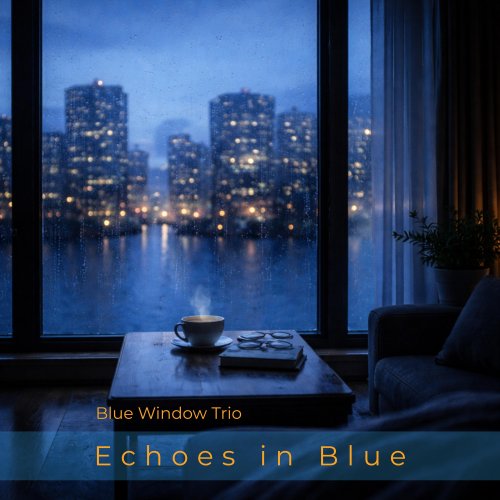Leslie Pintchik - Quartets (2007)
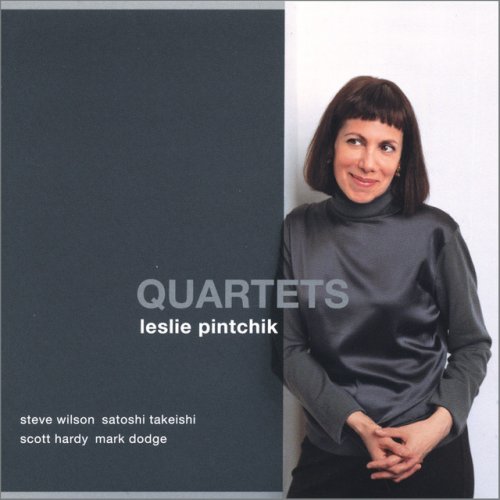
Artist: Leslie Pintchik
Title: Quartets
Year Of Release: 2007
Label: Ambient Records
Genre: Jazz
Quality: Mp3 / 320kbps
Total Time: 55:50 min
Total Size: 127 MB
WebSite: Album Preview
TracklistTitle: Quartets
Year Of Release: 2007
Label: Ambient Records
Genre: Jazz
Quality: Mp3 / 320kbps
Total Time: 55:50 min
Total Size: 127 MB
WebSite: Album Preview
------------
01. Happy Days Are Here Again
02. Too Close For Comfort
03. A Simpler Time
04. Not So Fast
05. Over Easy
06. Private Moment
07. Fugu
08. Small Pleasures
09. Somewhere Berimbau
Both quartets on Quartets include pianist Leslie Pintchik, bassist Scott Hardy and drummer Mark Dodge. One quartet extends its percussion section with Satoshi Takeishi, who played drums and percussion on Pintchik's first release, So Glad to Be Here (Ambient Records, 2004). The other quartet features Scott Wilson on alto or soprano saxophone.
A strength of this disc is its three standards, inventively arranged by Pintchik and Hardy. "Happy Days Are Here Again" moves at a stately pace, starting with an aura of hushed wonder, enhanced by Takeishi's rattling and tinkling and Dodge's cymbals. The mood gradually builds to a contained exuberance. "Too Close For Comfort" drives along in a percussive Brazilian groove in which all players bear down hard on the "too close" figure. (Ken Dryden's liner notes point out that they actually use two different dance rhythms.) Pintchik enriches with bluesy chords and figures, and Hardy plays an agile, swinging solo.
Among Pintchik's compositions, the upbeat "A Simpler Time" has an organic form and triplet phrasing over a duple meter. "Over Easy" has an active melody that, like other Pintchik compositions, repeats a phrase in different keys with rhythmic displacements. Wilson plays the lead on soprano and takes two interesting solos. "Small Pleasures" is a catchy tune, served well by the dark and rich tone of Wilson's soprano. Pintchik's solo hints at the style of Herbie Hancock in her use of arpeggios, blues-riff ornamentation, and alternation of single notes and octaves on a melodic line.
"Private Moments" has a long, songlike melody mixing duple and triple rhythms. Throughout, Pintchik's playing moves through tonal centers, suggesting light following shadow. Wilson takes the lead on soprano and plays an emotive solo. As an inspiration for the composition, Pintchik cites Pierre Bonnard's paintings of his wife bathing. I can feel a connection between her musical style and the painter's use of spare outlines with underlying meticulous brushwork that conveys complex light and color.
An intriguing departure from Pintchik's other compositions here, "Not So Fast" is a minor blues in a finger-snapping shuffle groove, with an angular melody reminiscent of "Something's Coming" and "Cool" from West Side Story (an association reinforced by the disc's closing "Somewhere/Berimbau"). A more weighty character emerges through Pintchik's boppish solo and then Wilson's solo full of blazing runs. As background to Dodge's deft solo, the other musicians play a modal-jazz rework of the tune based on its opening motif.
Hardy's composition "Fugu" is a samba poised between major and minor. As Pintchik plays the melody quietly, Hardy interpolates a falling half-step for a moving call-response effect. Hardy uses the singing character of his instrument to complement and extend the inherently percussive sound of the piano.
The closing standard, "Somewhere," is a standout. The song is effectively framed by a contrasting introduction and ending. The musicians ply varied tempos and grooves to convey the song's ambiguous message (should we believe and rejoice, or sigh at the futility?). For the introduction, Pintchik plays a descending-fifth motif over a four-measure chord vamp, which Dodge and Takeishi embellish and Hardy enhances with melodic swells. Pintchik improvises as the tempo increases and then falls back. The pitch drops a half step and then another, and they begin the theme. The simultaneous rise in intensity and fall in key is briefly disorienting.
Pintchik's treatment of the melody reflects the yearning quality of the Bernstein-Sondheim song in its original setting. At the same time, Hardy's walking bass with pedal points, as well as Dodge and Takeishi's percussion that includes cymbals, bells, and occasional snare rolls, add a tension and forward momentum that's almost marchlike. When the opening vamp returns, Pintchik solos with a bluesy touch. The tempo speeds up and then drops back for the return of the head. In the original arrangement, the "somewhere" cadence in parallel major triads has a modal flavor. Pintchik pares that down to parallel fourths, which suggests tenuous hope. But on the final "somewhere," she shifts its accent to create the instrument-mimicking introductory figure of Baden-Powell's "Berimbau," ending the piece in a joyful Brazilian groove. ~Virginia A. Schaefer
A strength of this disc is its three standards, inventively arranged by Pintchik and Hardy. "Happy Days Are Here Again" moves at a stately pace, starting with an aura of hushed wonder, enhanced by Takeishi's rattling and tinkling and Dodge's cymbals. The mood gradually builds to a contained exuberance. "Too Close For Comfort" drives along in a percussive Brazilian groove in which all players bear down hard on the "too close" figure. (Ken Dryden's liner notes point out that they actually use two different dance rhythms.) Pintchik enriches with bluesy chords and figures, and Hardy plays an agile, swinging solo.
Among Pintchik's compositions, the upbeat "A Simpler Time" has an organic form and triplet phrasing over a duple meter. "Over Easy" has an active melody that, like other Pintchik compositions, repeats a phrase in different keys with rhythmic displacements. Wilson plays the lead on soprano and takes two interesting solos. "Small Pleasures" is a catchy tune, served well by the dark and rich tone of Wilson's soprano. Pintchik's solo hints at the style of Herbie Hancock in her use of arpeggios, blues-riff ornamentation, and alternation of single notes and octaves on a melodic line.
"Private Moments" has a long, songlike melody mixing duple and triple rhythms. Throughout, Pintchik's playing moves through tonal centers, suggesting light following shadow. Wilson takes the lead on soprano and plays an emotive solo. As an inspiration for the composition, Pintchik cites Pierre Bonnard's paintings of his wife bathing. I can feel a connection between her musical style and the painter's use of spare outlines with underlying meticulous brushwork that conveys complex light and color.
An intriguing departure from Pintchik's other compositions here, "Not So Fast" is a minor blues in a finger-snapping shuffle groove, with an angular melody reminiscent of "Something's Coming" and "Cool" from West Side Story (an association reinforced by the disc's closing "Somewhere/Berimbau"). A more weighty character emerges through Pintchik's boppish solo and then Wilson's solo full of blazing runs. As background to Dodge's deft solo, the other musicians play a modal-jazz rework of the tune based on its opening motif.
Hardy's composition "Fugu" is a samba poised between major and minor. As Pintchik plays the melody quietly, Hardy interpolates a falling half-step for a moving call-response effect. Hardy uses the singing character of his instrument to complement and extend the inherently percussive sound of the piano.
The closing standard, "Somewhere," is a standout. The song is effectively framed by a contrasting introduction and ending. The musicians ply varied tempos and grooves to convey the song's ambiguous message (should we believe and rejoice, or sigh at the futility?). For the introduction, Pintchik plays a descending-fifth motif over a four-measure chord vamp, which Dodge and Takeishi embellish and Hardy enhances with melodic swells. Pintchik improvises as the tempo increases and then falls back. The pitch drops a half step and then another, and they begin the theme. The simultaneous rise in intensity and fall in key is briefly disorienting.
Pintchik's treatment of the melody reflects the yearning quality of the Bernstein-Sondheim song in its original setting. At the same time, Hardy's walking bass with pedal points, as well as Dodge and Takeishi's percussion that includes cymbals, bells, and occasional snare rolls, add a tension and forward momentum that's almost marchlike. When the opening vamp returns, Pintchik solos with a bluesy touch. The tempo speeds up and then drops back for the return of the head. In the original arrangement, the "somewhere" cadence in parallel major triads has a modal flavor. Pintchik pares that down to parallel fourths, which suggests tenuous hope. But on the final "somewhere," she shifts its accent to create the instrument-mimicking introductory figure of Baden-Powell's "Berimbau," ending the piece in a joyful Brazilian groove. ~Virginia A. Schaefer
IsraCloud : Download
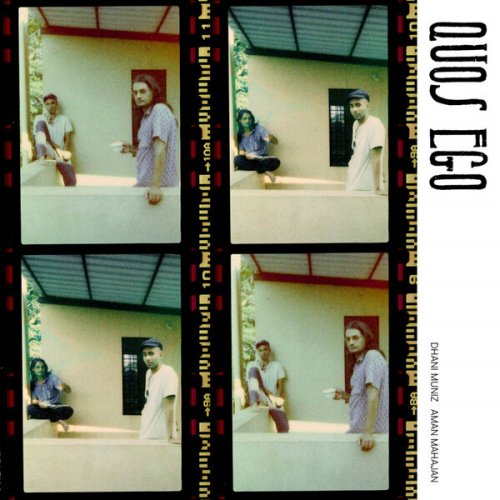
![Eero Koivistoinen - For Children (1970) [2006] Eero Koivistoinen - For Children (1970) [2006]](https://www.dibpic.com/uploads/posts/2026-02/1771615516_ff.jpg)
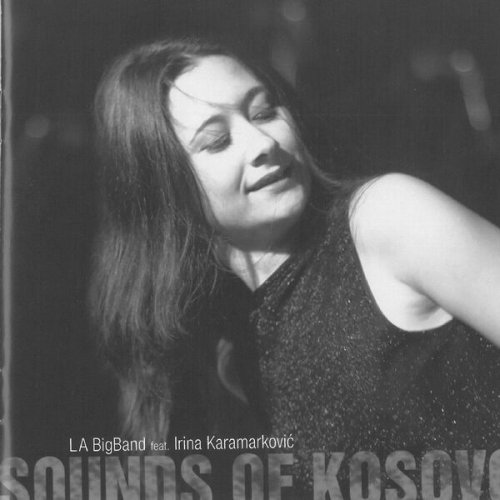
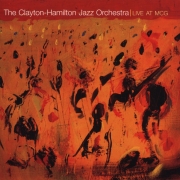

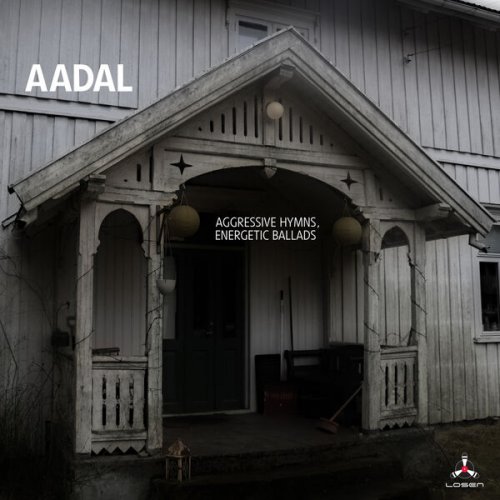
![Art Pepper - Everything Happens To Me: 1959 - Live At The Cellar (2026) [Hi-Res] Art Pepper - Everything Happens To Me: 1959 - Live At The Cellar (2026) [Hi-Res]](https://www.dibpic.com/uploads/posts/2026-02/1771405170_fcwg7jmt6mou1_600.jpg)
![Mona Krogstad - Serenity Now (2026) [Hi-Res] Mona Krogstad - Serenity Now (2026) [Hi-Res]](https://www.dibpic.com/uploads/posts/2026-02/1771330367_folder.jpg)
